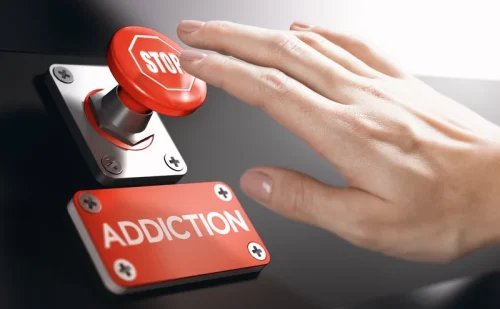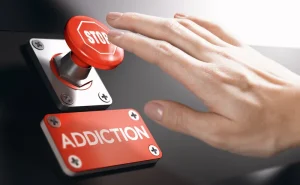Addiction vs dependence: Definitions and differences

Based on the information above, we can conclude that addiction and dependence are not the same, although they are often confused or used interchangeably. While both involve the use of substances and can coexist, they refer to different aspects of substance use. For example, opioid withdrawal may cause anxiety and insomnia, while opioid intoxication typically leads to calmness and drowsiness. Withdrawal symptoms can also trigger intense cravings for the substance, which may lead individuals to resume use to alleviate the symptoms and delay the withdrawal process. Addiction often begins with a voluntary decision to use drugs or engage in certain behaviors.
You deserve excellent care and a rewarding life in recovery.
However, while they are closely related, it’s crucial to understand the distinct differences between these two concepts. In this post, we’ll delve into the nuances of addiction and dependence, exploring their definitions, key differences, and the implications for those affected. Unlike addiction, dependence is primarily a biological response to the presence of a drug.
Abandoning The Terms

In the 1980s, the American Psychological Association sought to change this definition in the DSM (the Diagnostic and Statistical Manual of Mental Disorders). After a careful vote, “addiction” was changed to “substance dependence” and it remained that way until the DSM entered its 5th edition in 2013. In support groups like Alcoholics Anonymous, you receive support from people in similar situations as you.
Final thoughts on addiction vs dependence
So why do some organizations scrap the word “addiction” from their vocabulary? The minds behind the Diagnostic and Statistical Manual of Mental Disorders (DSM) find the term carries too much negative connotation and is ambiguous. The World Health Organization also wanted to replace the medical designation of “addiction” with the word “dependence” back in 1964 (which probably contributed to the confusion). Dr. Ashish Bhatt, MD explains the differences between physical dependency and addiction.
- If you prioritize drug use over your colleagues or loved ones, you might face serious consequences.
- Addiction, on the other hand, is not a predictable drug effect, but rather a disease that occurs in genetically, biologically, and psychosocially vulnerable individuals.
- Before any opioid regimen is prescribed, both the patient and doctor must work together to develop a plan in case the person patient begins to show signs of SUD.
- Could someone who is dependent on alcohol or drugs be diagnosed as having an addiction?
- Physical dependence is a natural expected physiological response to drugs such as opioids, benzodiazepines, antidepressants and corticosteroids.
- The purpose of this study is to consider different approaches in this field.
- Just like with other diseases, sometimes you need multiple treatments or repeat treatments.
- It is important to keep in mind that physical dependence can occur without the patient developing a SUD.
AddictionResource aims to present the most accurate, trustworthy, and up-to-date medical content to our readers. Our team does their best for our readers to help them stay informed about vital healthcare addiction vs dependence decisions. Similarly, a person who previously got high from any strain of marijuana might now need a more potent variety.
- Alcohol abuse is also a continuing problem in the country, with over 65 million people binge drinking in the past month.
- A detox center will place you in comfortable surroundings where you can be assured of help in case of emergencies.
- When genetics, environment, and drug use overlap, addiction may occur.
- For example, physical dependence occurs when the body is reliant on the chemical interactions caused by a drug or substance.
Addiction Is a Disease; Tolerance and Dependence Aren’t
The differences between substance abuse, dependence, and addiction can be difficult to define. If you’re concerned about your drug use and whether it’s crossing the line towards addiction, an understanding of these terms can help. For example, cocaine addiction can be severe, but it is more likely to cause psychological dependence than physical dependence. While you may experience cravings, build up a tolerance, and feel irritable and restless when you stop using, it may not be as severe as someone who is physically dependent on a substance.
- Similarly, individuals with addiction may be more likely to develop dependence due to their increased exposure and use of the substance.
- It’s about finding the right fit, like Cinderella’s glass slipper, but for recovery.
- Many medications, particularly those for pain management or anxiety, can lead to physical dependence with long-term use.
Detox Programs

Dr. Kevin Wandler of Advanced Recovery Systems warns that addictive drugs, such as nicotine, can cause dependence. But our genetic makeup doesn’t necessarily rule our choices and our lives. For example, social drinkers with a family history of addiction have a 1 in 5 risk of misusing alcohol, he says. Like all chronic illness, a family history puts people at higher risk for developing the illness. What these strategies are depends on the substance or behavior a person wants to stop. Dependence can happen with many drugs, even when a person takes them as per their doctor’s instructions.

More on Substance Abuse and Addiction
Dependence on a drug can certainly lead to a substance abuse disorder (SUD). According to the latest Diagnostic and Statistical Manual of Mental Disorders (DSM-5), there’s not really a distinction between dependence and abuse anymore. Rather, the manual defines substance abuse disorders as mild, moderate, or severe.
What is the difference between substance abuse and substance dependence?

For example, if you get into an argument with a significant other, your first response will be to pick up a six-pack of beer or call your dealer for illicit drugs. These triggers set off biochemical changes in your brain, which influence addictive behavior. Addiction and dependence are words both used to describe an unhealthy and problematic pattern of drug or alcohol use.

Recent Comments